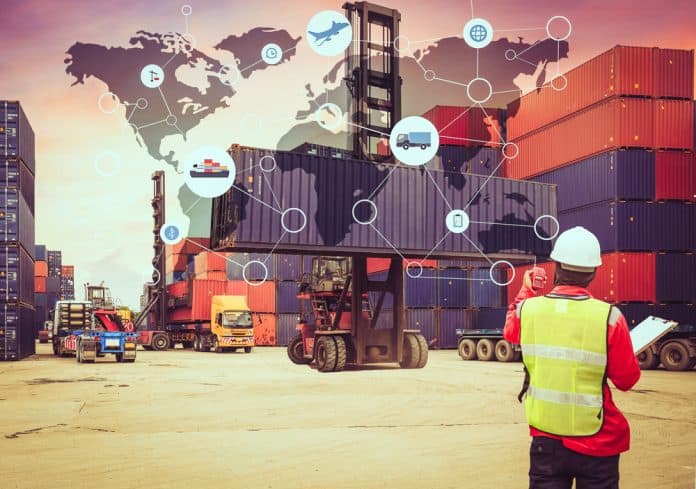There have been transformational changes in the way that technology is used in logistics and the supply chain over the past few years. As technology continues to advance, the impact on global supply chains is undeniable. From enhanced visibility and streamlined processes to improved efficiency and customer satisfaction, digitalization is revolutionizing how international logistics operate.
Some of the specific positive effects of current and potential technologies on the supply chain and logistics industry are outlined below.
1. Enhanced Supply Chain Visibility
One of the key advantages of digitalization in international logistics is the ability to achieve greater visibility across the supply chain. Advanced tracking technologies, such as GPS, RFID, and real-time data analytics enable companies to monitor the movement of goods in real-time, ensuring transparency and reducing the risk of delays or losses. This increased visibility allows for proactive decision-making, improved inventory management, and efficient allocation of resources and also gives companies from all sizes the same playing field by reducing the disadvantages of some companies being a smaller size.
2. Streamlined Processes and Efficiency
Digitalization enables the automation of various logistics processes, eliminating manual tasks and reducing human error. Technologies such as Artificial Intelligence (AI), Machine Learning, and Robotic Process Automation (RPA) optimize tasks like order processing, documentation, and customs clearance. Automated systems enhance efficiency, speed up operations, and reduce operational costs, leading to smoother overall international logistics operations.
3. Data-Driven Decision Making
With digitalization, companies from all corners of the logistics and supply chain industry have access to vast amounts of data from multiple sources, including customer preferences, market trends, and operational metrics. This data can be leveraged to gain valuable insights and make informed decisions. Predictive analytics and big data solutions enable demand forecasting, inventory optimization, route optimization, and risk management. By harnessing the power of data, companies can make strategic decisions that drive operational excellence and improve customer satisfaction.
4. Customer-Centric Approach
Digitalization empowers logistics providers to offer a customer-centric approach. From online order tracking systems and real-time notifications to personalized customer portals, technology enables a seamless and transparent customer experience. Customers can track their shipments, access important information, and communicate directly with logistics providers, enhancing satisfaction and loyalty.
5. Collaboration and Connectivity
Digitalization fosters collaboration and connectivity among various stakeholders in international logistics. Cloud-based platforms, collaborative software, and digital marketplaces facilitate seamless communication and data sharing between shippers, freight forwarders, carriers, and customs authorities. This integration improves coordination, reduces paperwork, and enables faster decision-making, benefiting the entire supply chain ecosystem.
The impact of digitalization on international logistics is profound.
With technology improving everyday, conducting business in the global logistics and supply chain industry will only get easier and better over the years and more accessible to the broader population.
Currently, there are still some challenges such as high implementation costs. There are also concerns about scalability and security with some certain technologic offerings. The future of international logistics will be shaped by digitalization, as it helps and yield the way for efficiencies. It is ever-changing and evolving and those who embrace it will continue to be ahead of the curve.




